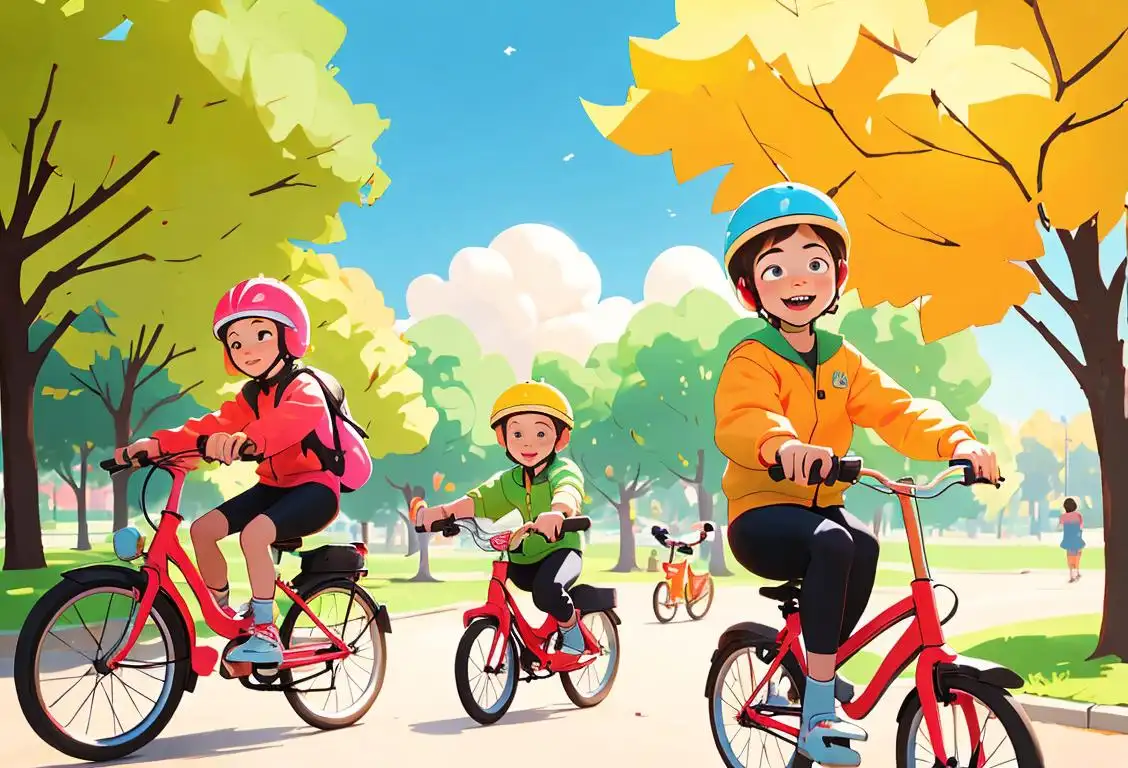National Family Literacy Day

Hey there, bookworms and word enthusiasts! Today, we're diving into the delightful world of National Family Literacy Day. Get ready to explore the wonders of reading with your loved ones and celebrate the power of words. So put on your reading glasses and let's get started!
When is Family Literacy Day?
It's national family literacy day on the 1st November.
A Brief Journey Through National Family Literacy Day
Every year, on November 1st, we commemorate National Family Literacy Day, a day dedicated to promoting the importance of literacy within families. It's a day when parents, grandparents, siblings, and all family members come together to celebrate the joy of reading and encourage each other to cultivate a love for books.
But how did this special day come into existence? Well, it all started with the National Center for Family Literacy (NCFL). In 1994, NCFL initiated the first National Family Literacy Day, inspired by the belief that literacy is the foundation for a strong and successful society.
Through various events and activities, National Family Literacy Day aims to raise awareness about the importance of family involvement in education and promote literacy as a lifelong journey. From reading competitions to storytelling sessions, families can enjoy a day filled with literary adventures!
Engaging in Family Literacy Activities
So, how can you make the most of National Family Literacy Day? Here are a few ideas to inspire you:
- Organize a family reading night, complete with cozy blankets and hot cocoa.
- Visit your local library or bookstore together and pick out new books for everyone to enjoy.
- Create a family book club and discuss your favorite reads.
- Encourage your children to write and illustrate their own stories.
- Explore the world of audiobooks and listen to a captivating story together.
The Impact of Family Literacy
By embracing family literacy, we can foster a love for reading and learning from an early age. When families read together, children not only develop a stronger bond with their loved ones but also enhance their language skills, expand their imaginations, and improve their academic performance. Plus, it's a fantastic opportunity for grown-ups to rediscover the magic of storytelling!
So, gather your loved ones, grab your favorite books, and embark on a literary adventure on National Family Literacy Day. Let the written word transport you to far-off lands and ignite your imagination. Happy reading!
History behind the term 'Family Literacy'
1986
Emergence of the term 'family literacy'
In 1986, the term 'family literacy' was coined to describe the educational and literacy practices that occur within the context of a family. This term acknowledges the significant role that families play in promoting and fostering literacy skills among their members. Family literacy programs aim to support both children and adults in developing essential reading and writing skills, as well as fostering a love for learning.
1990
Recognition of family literacy by the US government
In 1990, family literacy gained recognition and support from the US government with the passage of the National Literacy Act. This legislation acknowledged the importance of family literacy as a means to improve educational outcomes and empower individuals and communities. The Act established the National Institute for Literacy, which provided funding and resources for the development of family literacy programs across the nation.
1991
Adoption of the term 'family literacy' globally
By 1991, the term 'family literacy' had gained widespread acceptance and usage internationally. Various countries, including Canada, Australia, and the United Kingdom, embraced the concept and began implementing their own family literacy initiatives. This global adoption of the term reflected a growing understanding of the critical role families play in supporting literacy development and educational success.
1999
Establishment of National Family Literacy Day
To raise awareness about the importance of family literacy, the United States began celebrating National Family Literacy Day annually on November 1st, starting in 1999. This day is dedicated to promoting reading and other literacy-related activities within families, emphasizing the joy and benefits of shared reading experiences. National Family Literacy Day serves as a reminder of the positive impact that strong family literacy practices can have on individuals and communities.
2003
Family literacy recognized by UNESCO
In 2003, UNESCO, the United Nations Educational, Scientific and Cultural Organization, recognized the importance of family literacy in promoting lifelong learning and social development. UNESCO highlighted the need for international cooperation to enhance family literacy programs and ensure equitable access to quality education for all individuals. This recognition further solidified family literacy as a key component of global literacy initiatives.
Did you know?
Did you know that the longest novel ever written, according to the Guinness World Records, is 'Artamène ou le Grand Cyrus'? It was penned by French author Madeleine de Scudéry and spans a staggering 13 volumes. That's one book you definitely won't finish in a single sitting!Tagged
awareness loved ones family educationFirst identified
31st October 2015Most mentioned on
1st November 2017Total mentions
1137Other days
Family Literacy Day
Schools Tree Planting Day
Puzzle Day
Maternal Health Awareness Day
Educators Coming Out Day
Pit Bull Victim Awareness Day
Hispanic Hepatitis Awareness Day
Phd Welcome Day
Drop Everything And Read Day
Kidsafe Day







